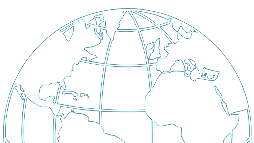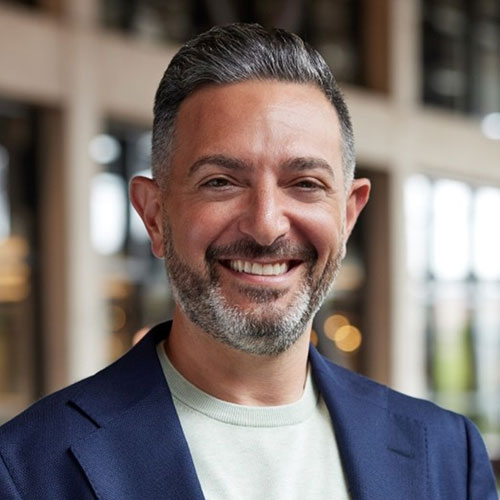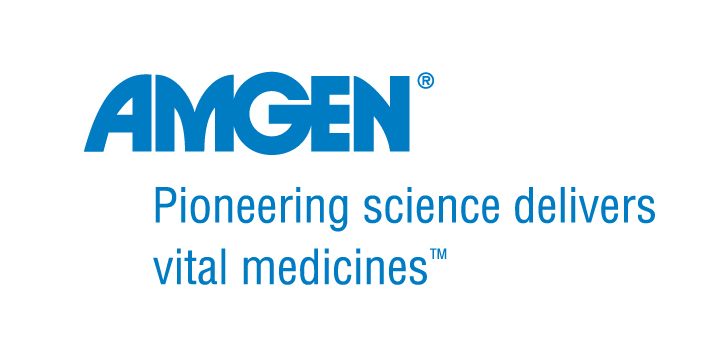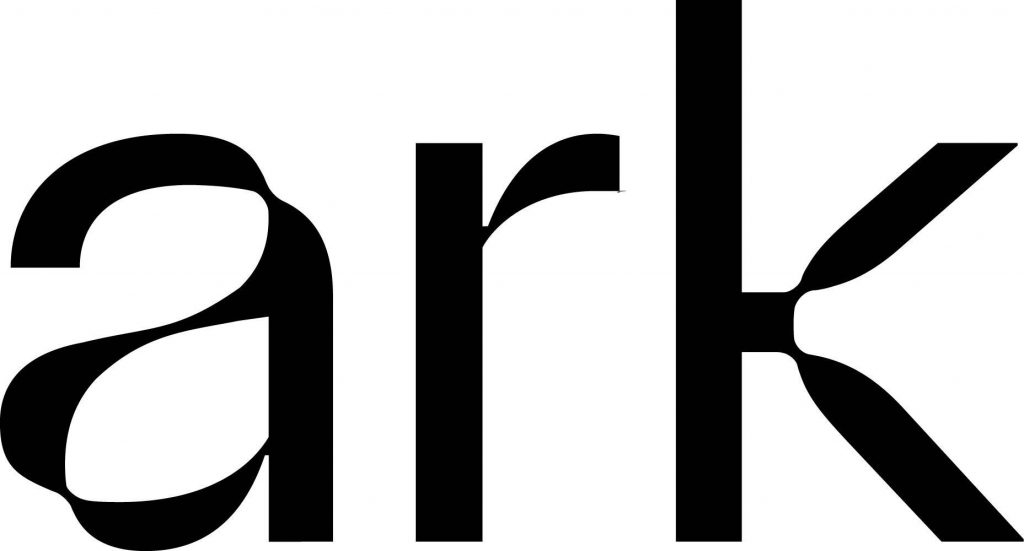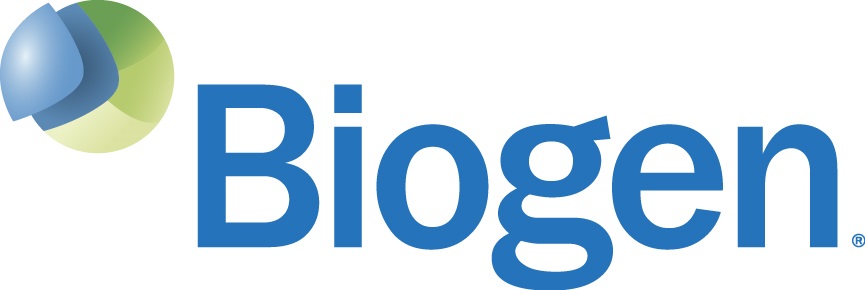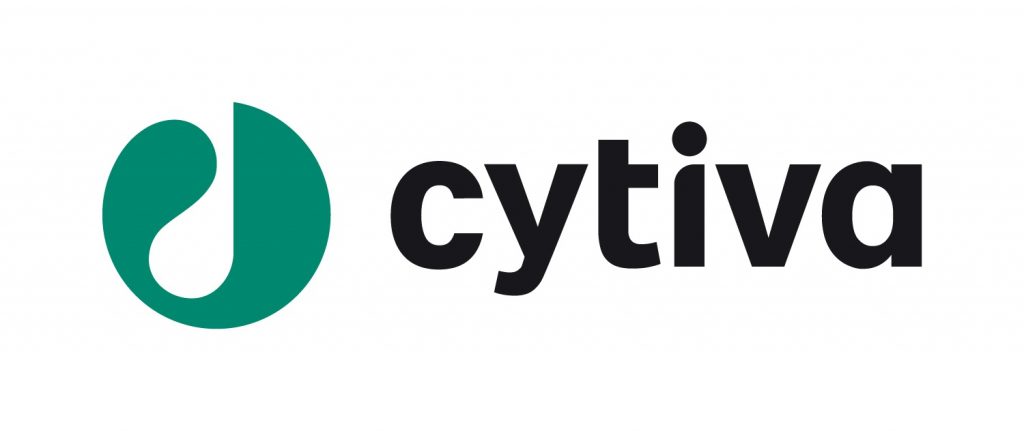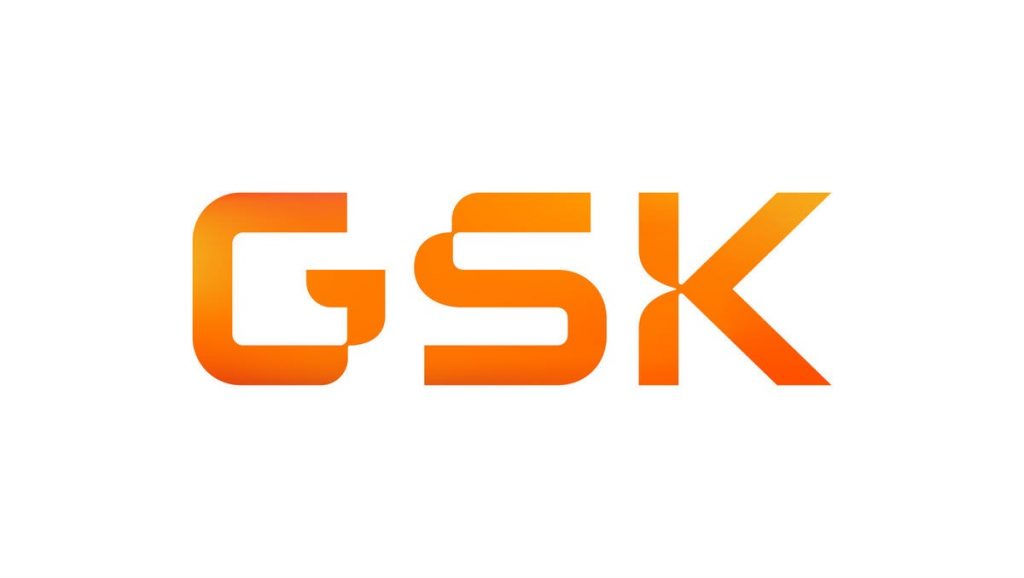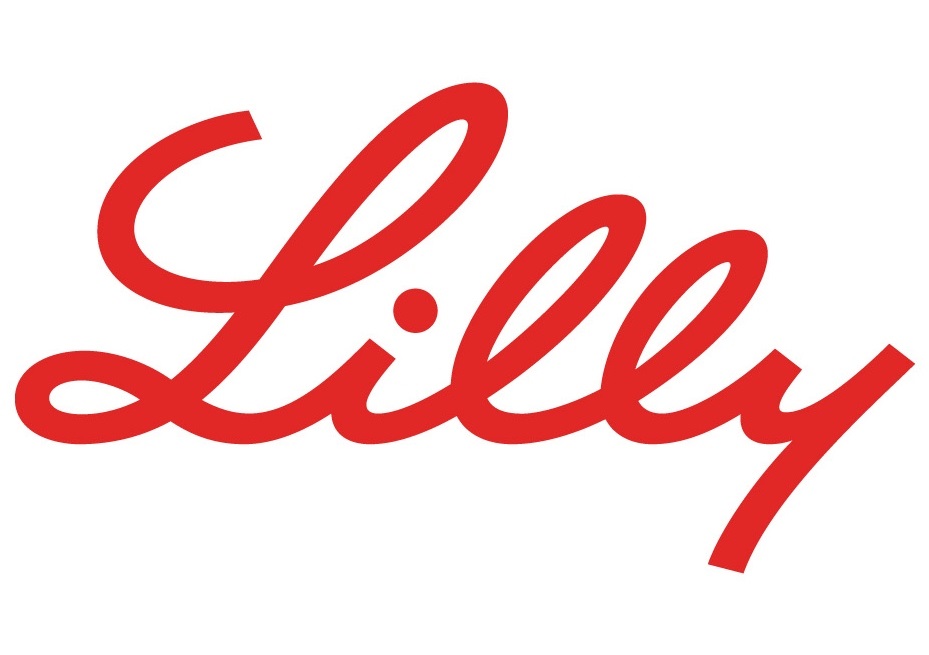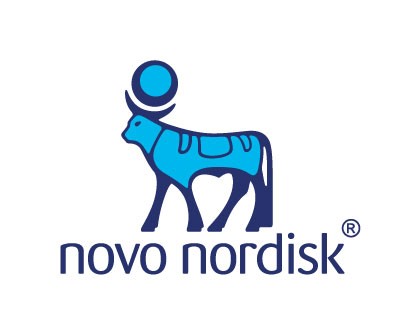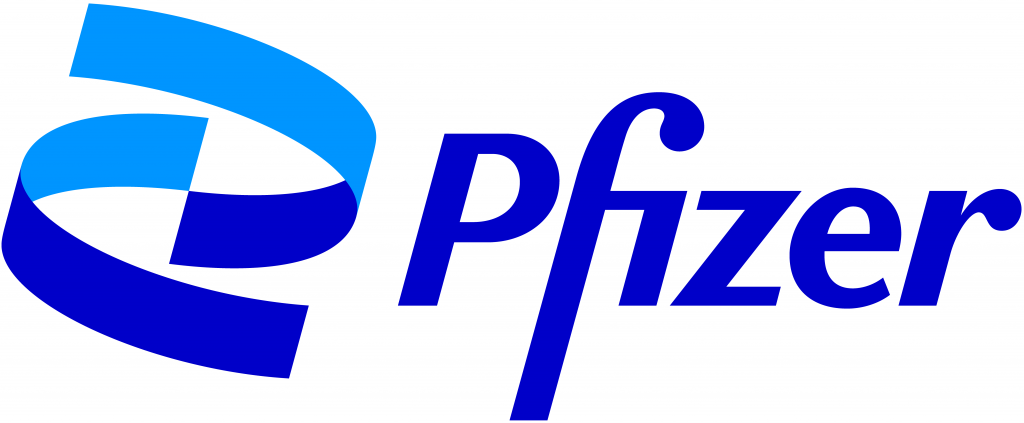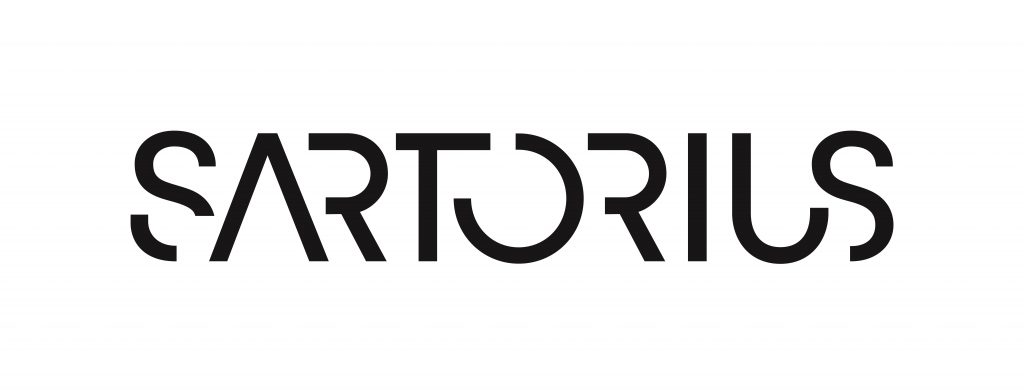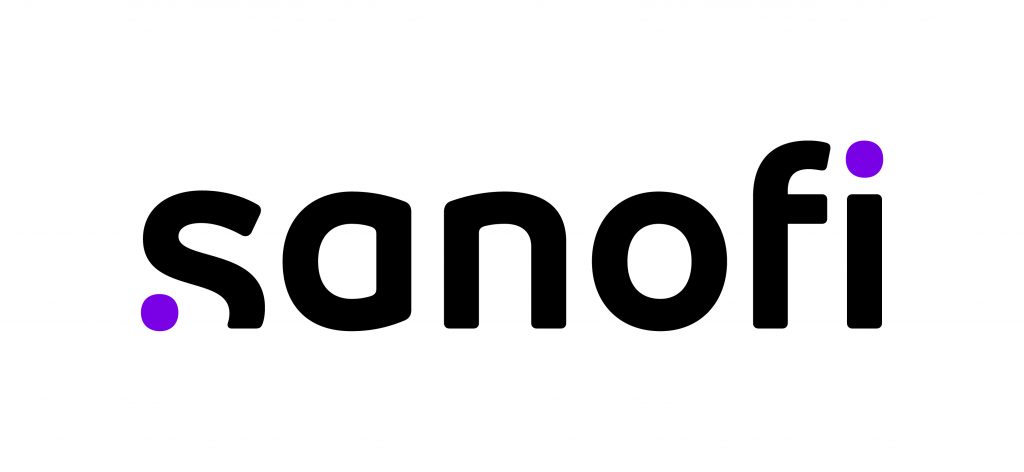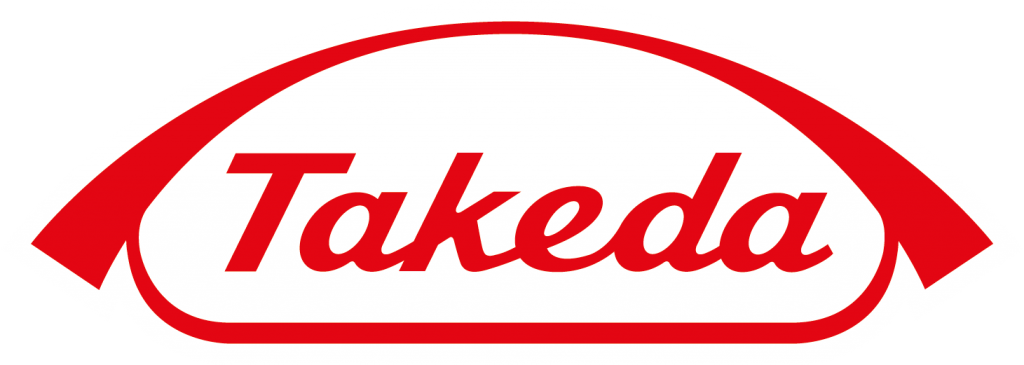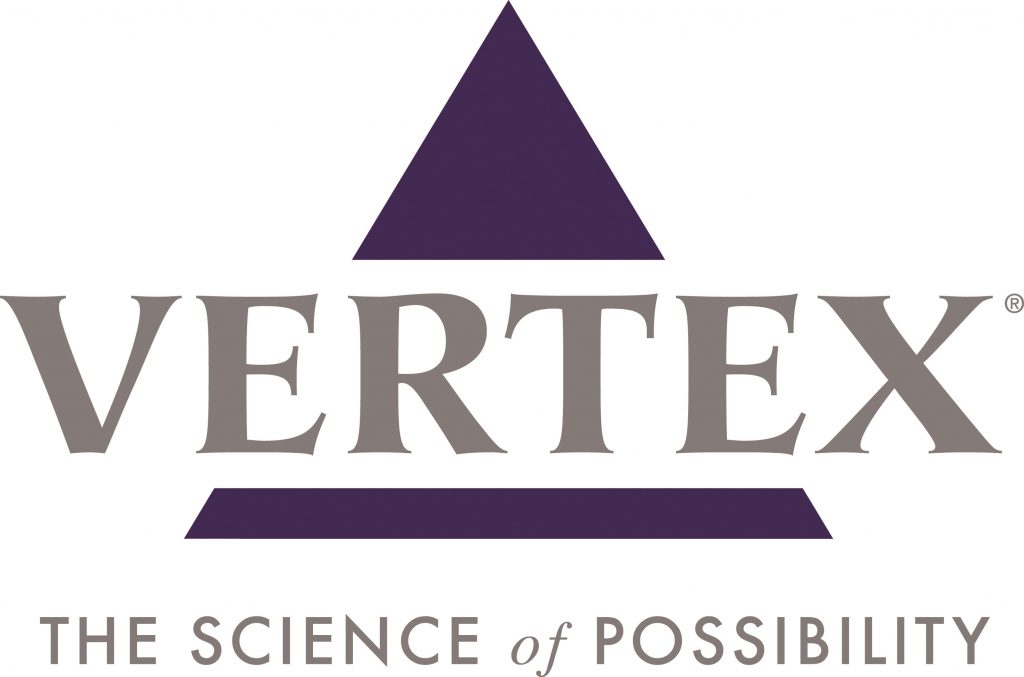
April 27 – May 2, 2025
Tucson, Arizona, USA
Cell Culture Engineering Awardee – 2025 – Weichang Zhou
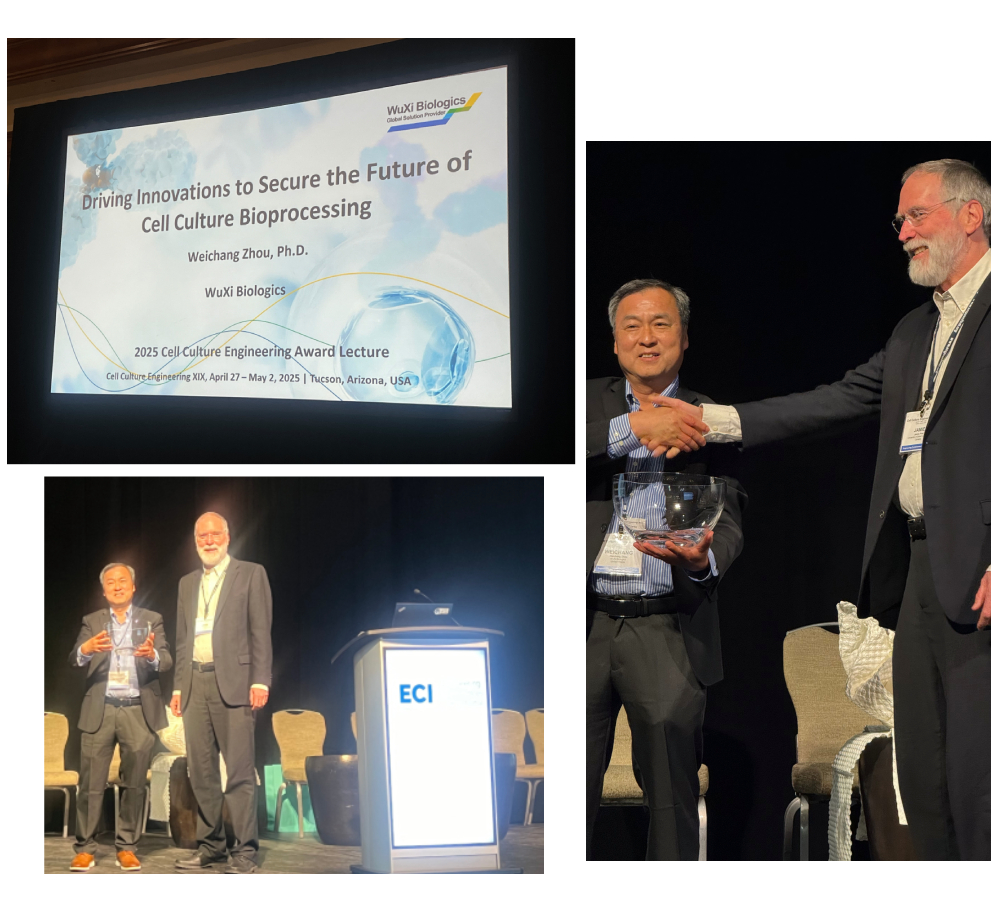
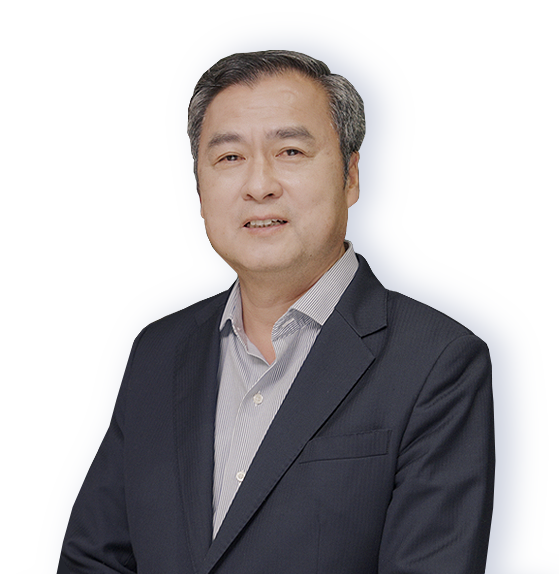
Dr. Weichang Zhou is a globally recognized leader in cell culture engineering and bioprocessing. He earned his Ph.D. in Chemical Engineering and Biotechnology from the University of Hannover, Germany, in 1989 under the mentorship of Prof. Karl Schügerl, followed by postdoctoral research at esteemed institutions such as the German DECHEMA Institute, ETH Zurich, and the University of Minnesota, where he began his pioneering work in cell culture engineering under Prof. Wei-Shou Hu in 1992. Dr. Zhou has played pivotal roles in the biopharmaceutical industry, holding leadership positions at Merck, Genzyme (Sanofi), PDL BioPharma, and WuXi Biologics. Until his retirement in 2024, he served as Chief Technology Officer and President of Global Biologics Development and Operations at WuXi Biologics, where he now remains Honorary President and Senior Advisor to CEO. His contributions span pioneering research, industrial innovation, and transformative leadership, reflected in over 85 publications, 16 patents, and groundbreaking technologies that greatly advanced biologics and vaccine manufacturing.
Contributions to Cell Culture Engineering and Bioprocessing
Dr. Zhou’s technical innovations have reshaped cell culture engineering and industrial bioprocessing:
- Viral Vaccine Manufacturing: At Merck, he developed modern cell culture process monitoring and control technologies to advance viral vaccine production, including Rotavirus and Hepatitis A vaccines. He also led the development and scale-up of PER.C6™ cell culture and replication-defective adenovirus vector propagation for HIV vaccine production.
- Metabolic Control Strategies: He pioneered dynamic nutrient feeding based on oxygen uptake and lactate production rates, optimizing metabolism for higher productivity in fed-batch cultures. His 1990s work at Merck achieved a then-record antibody titer of 2.7 g/L, a benchmark unbroken for years. At PDL BioPharma, his team demonstrated the importance of shifting from lactate production to consumption for sustained high productivity, and was the first employing a strategy of high glucose culture and salt replacement based on the principle of osmotic balance.
- Perfusion and Continuous Processing: At Genzyme and WuXi Biologics, he drove advancements in intensified perfusion culture and integrated continuous bioprocessing. His leadership led to the development of WuXiUP™, a platform that increased cell culture productivity to 30–50 g/L—10 times higher than traditional fed-batch—with 80–90% downstream yields, reducing costs and accelerating drug development.
- Process Analytical Technology (PAT): He pioneered PAT platforms integrating Raman spectroscopy and machine learning, enabling real-time monitoring and predictive control from lab to GMP manufacturing.
At WuXi Biologics, Dr. Zhou led the development of integrated CMC platforms that streamlined biologics manufacturing. Under his leadership, the company:
- Reduced biologics development timelines from DNA to IND to 6–10 months, and for pandemic biologics (e.g., COVID-19 antibodies), to as little as 3–6 months from DNA to IND and 14 months to Emergency Use Authorization.
- Supported over 700 biologics programs (30% of global candidates), resulting in 500+ INDs and 20+ commercial approvals.
- Developed and scaled up high-productivity fed-batch, perfusion, and integrated continuous bioprocesses for manufacturing monoclonal antibodies, multispecific antibodies, ADCs, and recombinant proteins.
In 2023, he was elected Chief Technology Officer of the Year (Asia-Pacific Biopharma Excellence Awards) for his contributions to accelerating global biologics development and manufacturing.
Service to the Biotechnology Community
Dr. Zhou has been a cornerstone of global bioprocessing collaboration:
- Conference Leadership: He co-chaired major conferences, including the 2003 Biochemical Engineering XIII Conference (with Prof. Terry Papoutsakis), the 2004 ACS Division of Biochemical Technology Annual Meeting (with Prof. Anne Robinson), and the 2014 ECI Cell Culture Engineering Conference (with Prof. Amine Kamen), fostering innovation and collaboration.
- Editorial Contributions: He co-edited key monographs in the Advances in Biochemical Engineering and Biotechnology series on gene therapy (with Prof. David Schaffer) (2005) and biologics manufacturing (with Dr. Anne Kantardjieff) (2014), which remain essential resources.
- Academic Engagement: As a guest professor/lecturer at universities in the U.S. and China, he has actively bridged industry and academia. As Chair of the 2009 ACS Biochemical Technology Division, he revitalized its leadership and outreach.
Mentorship and Training
Dr. Zhou has dedicated his career to mentoring and training the next generation of bioprocessing professionals:
- Industry Training: As a lead lecturer for the University of Minnesota’s annual cell culture bioprocessing course and guest lecturer at several Chinese universities, he has trained thousands of scientists and engineers.
- Team Building: He established and led large cell culture development teams at Merck, PDL BioPharma, and Genzyme. At WuXi Biologics, he built and led a 5,000-member team—the largest biologics development team at any CDMO—executing complex projects across diverse modalities.
- Global Knowledge Sharing: He has delivered over 200 presentations at international conferences, sharing best practices in cell culture engineering worldwide.
Recognizing a Legacy of Innovation and Leadership
Dr. Weichang Zhou’s career epitomizes excellence in innovation, leadership, and service. His breakthroughs in cell culture engineering, transformative industrial platforms, and dedication to mentorship have accelerated biologics development and accessibility, setting new industry standards. By advancing both science and the professionals who drive it, he is a visionary leader deserving of the 2025 Cell Culture Engineering Award.
This prestigious award, given biennially at the Cell Culture Engineering Conference, honors outstanding contributions to the field. Former recipients include Wei-Shou Hu (2002), Eleftherios T. Papoutsakis (2004), W. Robert Arathoon (2006), Martin Fussenegger (2008), Michael J. Betenbaugh (2010), James M. Piret (2012), Jeffrey J. Chalmers (2014), Konstantin B. Konstantinov (2016), William Miller (2018), and Manuel Carrondo (2023). Dr. Zhou joins this distinguished lineage of pioneers who have shaped the future of cell culture engineering and bioprocessing.
Martin Sinacore Awardee – Yu Luo
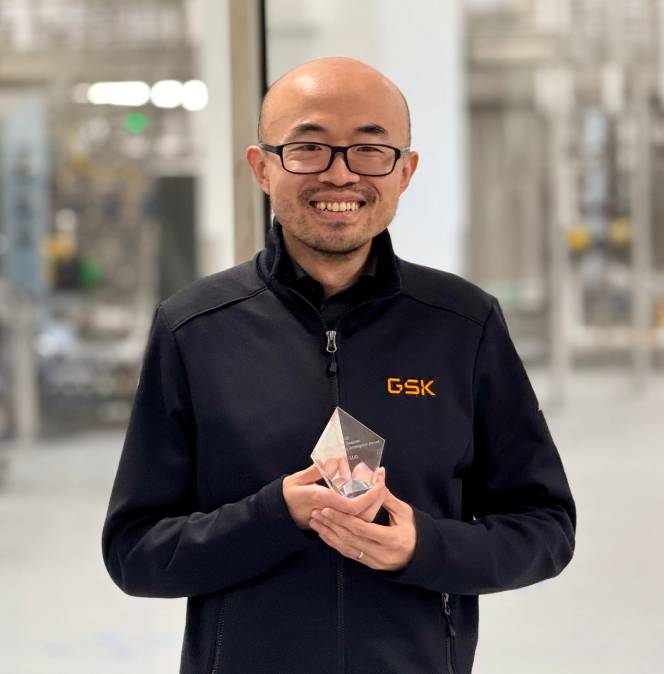
Yu Luo is a Principal Investigator and modeling SME in the Biopharmaceutical Drug Substance Development department at GSK. He joined GSK in 2021 after completing his Ph.D. in Chemical Engineering at Columbia University and a postdoctoral position at the University of Delaware.
During his tenure at GSK, Yu has played a pivotal role in advancing model-based process development, monitoring, and control. He leads a matrix PAT team with members from manufacturing and R&D organizations to advance and industrialize Raman spectroscopy for real-time process monitoring and control at both pilot and commercial scales. Additionally, he applied his modeling skills to enhance the productivity of multiple assets. Notably, he introduced the Design of Dynamic Experiments approach to cell culture process development at GSK, enabling the creation of efficient experiments with dynamic inputs. In collaboration with R&D and Global Supply Chain partners, Yu has developed and deployed digital twins for commercial products and late-phase biologics, thereby enhancing the consistency and productivity during the manufacture of commercial products such as Nucala and Jemperli.
Yu served as an Associate Fellow at GSK and continues to mentor multiple employees, as well as industry-affiliated Ph.D. students and postdoctoral fellows from various academic institutions. Through these efforts, Yu is advancing scientific innovation both within and outside GSK and nurturing the next generation of talent in bioprocessing.
CCE XIX Poster Awards
Best Overall Poster
Mario Pereira
ATUM, USA
“Leveraging orthogonal transposase/transposon pairs as an alternative genetic engineering tool in CHO cells”
Poster Award – 1st Place
Srikanth Rapala
Clemson University, USA
“Data-driven optimization of perfusion processes to reduce throughput volumes and increase productivity”
Poster Award – 2nd Place
James Budge
University of Kent, UK
“Mapping cellular processes that determine delivery of plasmid DNA into the nucleus: Application in mammalian expression host cells to enhance recombinant protein production”
Poster Award – 3rd Place
Sven Goebel
Max Planck Institute, Germany
“Production of a fusogenic oncolytic virus: Establishment of a scalable integrated production process”
Poster Award – Honorable Mention
Justice Ene
FAMU-FSU College of Engineering, USA
“Biomanufacturing and lipidomics analysis of extracellular vesicles
secreted by human blood vessel organoids in a vertical wheel bioreactor”
Poster Award – Honorable Mention
Tiffany McLamarrah
Sanofi, USA
“Improvement in productivity of protein biologics in recombinant CHO cells
created with transposon technology”
About This Conference
Since its beginning in 1988, the Cell Culture Engineering Conference series has been a very influential forum for leaders and experts from academic, regulatory, and industrial backgrounds to convene and discuss cell culture and related advancements that impact a growing spectrum of modalities including recombinant biologics, cell and gene therapies, and viral vaccines. Rapid advances in the field over the last few years with continuing advances in Immuno-oncology, novel drug conjugates, and application of digital and AI/ML tools have resulted in innovation and novel learnings that are ideal for stimulative discussion and debate.
We are building on the excellent foundation of the last Cancun CCE XVIII held in April 2023 and are designing a compelling program for CCE XIX to be held in Tucson, AZ in April 2025. CCE XIX welcomes invited participants across all walks of the practice of cell culture and related technologies and will provide a platform for exchange of cutting-edge scientific and technological advances and related discussions and debates that can help share the future of the discipline.
We look forward to hosting the conference, working with many of you on the planning of the conference and to interacting with all of you at the conference.
– Anurag, Marcella and Mike
Conference Chairs
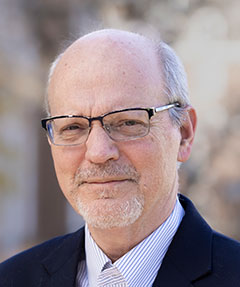
Michael Betenbaugh
Johns Hopkins University
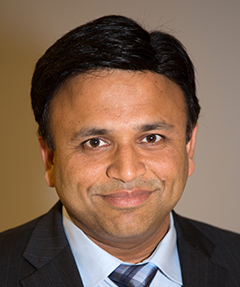
Anurag Khetan
Bristol Myers Squibb
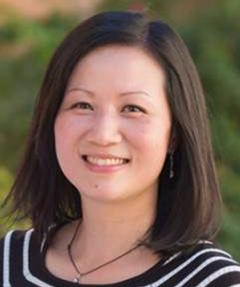
Marcella Yu
Gilead Sciences
2025 Organizing Committee
Susan Abu-Absi, 2Seventy Bio Inc.
Nicolas R.Abu-Absi, AbbVie
Sanjeev Ahuja, Merck
Christina Alves, Takeda
Maciek R. Antoniewicz, University of Michigan
Mark Blenner, University of Delaware
Kara Calhoun, NGM
Aaron Chen, Immunome, Inc.
Kristen Douglas, Vir Biotechnology, Inc.
Paul Gramlich, Amgen
Latonia M. Harris, Janssen Pharmaceuticals
Olivier Henry, Polytechnique Montreal Canada
Yao-Ming Huang, Eli Lilly and Company
Nitya Jacob, Gilead Sciences
Ioscani Jiménez del Val, University College Dublin
Cleo Kontoravdi, Imperial College London
Shawn Lawrence, Regeneron Pharmaceuticals, Inc.
Huong Le, Gilead Sciences
Dong-Yup Lee, Sungkyunkwan University
Nathan E. Lewis, University of Georgia
Henry Lin, Sanofi
Bhanu Mulukutla, Pfizer, Inc.
Laura Segatori, Rice University
Mercedes Segura, ElevateBio
Kevin Smith, Asimov
Andy Snowden, J&J Innovative Medicine
Emmanuel Tzanakakis, Tufts University
Seongkyu Yoon, University of Massachusetts, Lowell
Inn H.Yuk, Genentech
Weichang Zhou, WuXi Biologics
Cell Culture Engineering Conferences Series Steering Committee
Dana Andersen, Denali Therapeutics
John Aunins, Janis Biologics
Mike Betenbaugh, Johns Hopkins University
Barry Buckland, BiologicB LLC
Jeff Chalmers, The Ohio State University
Tim Charlebois, NIIMBL
Matt Croughan, Claymore Bio LLC
Chetan Goudar, Amgen
Peter Gray, University of Queensland
Sarah Harcum, Clemson University
Wei-Shou Hu, University of Minnesota
Amine Kamen, McGill University
Robert Kiss, Independent Consultant
Konstantin Konstantinov, Ring Therapeutics
Kelvin Lee, University of Delaware
Gargi Maheshwari, Merck & Co., Inc.
Laura Palomares, Instituto de Biotecnología, UNAM
Jamie Piret, University of British Columbia
Octavio Ramirez, Instituto de Biotecnología UNAM
Anne Skaja Robinson, Carnegie Mellon University
Gene Schaefer, NIIMBL
Raghavan Venkat, AstraZeneca
Tongtong Wang, Roche
Jamey Young, Vanderbilt University
Weichang Zhou, WuXi Biologics
Program Agenda
Keynote Speakers
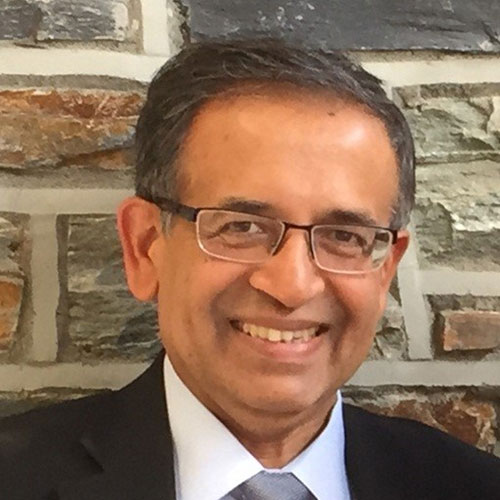
Vijay Yabannavar, Ph.D.
Gates Foundation
April 28, 2025
“Global access needs innovations for producing affordable monoclonal antibodies and cell culture based vaccines with easy to use delivery technologies”
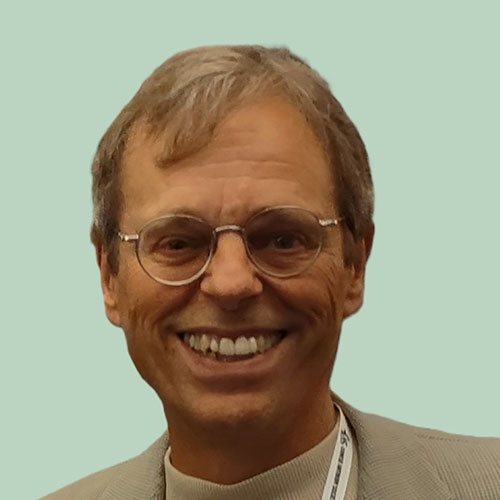
John M. Lambert, Ph.D.
Scientific Advisor,
Honorary Professor
April 30, 2025
“ABC of ADCs, Evolution of Design, Developing Trends, and Future Prospects”
Conference Sessions
Session I: New Technologies and Approaches to Enhance Tech Transfer Efficiency and Product Understanding
Session Chairs: Henry Lin (Sanofi), Olivier Henry (Polytechnique Montreal Canada), Kara Calhoun (NGM Bio)
Successful execution of technology transfer and scale-up remain critical capabilities for the cell culture community today. Have our practices evolved to be more efficient in the last few decades? The complexity of manufacturing has increased significantly due, in part, to highly variable product volume demands, network diversity of internal and CMO capacity options, a wide-ranging spectrum of product modalities, the onset of new process technology and formats, and a constant pressure to be faster and more cost-effective. To cope with these multitude of challenges, a reinvention of traditional technology transfer and scale-up is necessary. To this end, we are seeking topics for this session that address these challenges. Examples include adoption of advanced data analytics and AI driven approaches to aid in technology transfer, leveraging platform and prior knowledge, advances in scale-down model techniques and utilization, new technology tools for scale-up and technology transfer, and PAT for the support of scale-up, data-driven decisions and process understanding. Of particular interest are industrial case studies, adoption of emerging technologies (including continuous, integrated biomanufacturing), and new paradigms for technology transfer and scale-up.
Session II: Complex and Emerging Modalities: Opportunities and Challenges
Session Chairs: Yao-Ming Huang (Eli Lilly), Latonia Harris (Janssen), Mark Blenner (University of Delaware)
This session will highlight recent bioprocessing progress beyond the well-established protein therapeutics (e.g., mAbs), emphasizing production of viral vectors, vaccines, antibody drug conjugates (ADC), bi- and multispecific antibodies, and other emerging therapeutic modalities. The present surge of clinical trials that rely on viral vectors for gene delivery indicates that gene therapy is becoming a viable therapeutic modality and may soon provide cures for a broad range of human diseases. However, significant strides are needed in vector production process efficiencies and industrialization to deliver COGs for small orphan indications that support reimbursement rates acceptable to both sponsors and payers. Progress on this front is also needed for indications with larger patient populations and/or large doses to meet the demand for these therapeutics. In addition, there is still the need for next generation vaccines and ADC that are more broadly effective and safe. This session encourages submission of abstracts describing innovative work enhancing viral vector productivity and robustness through vector engineering, host cell line optimization and/or process development as well as abstracts describing innovations in the production of next generation vaccines, oncolytic viruses, exosomes and other non-viral therapeutic delivery systems.
Session III: Celebrating Wei-Shou Hu: Four Decades of Pioneering Cell Culture Engineering
Session Chairs: Susan Abu-Absi, Nitya Jacob (Gilead), Manolis Tzanakakis (Tufts), Weichang Zhou (WuXi Biologics)
Join us for a special session honoring Wei-Shou Hu, Distinguished McKnight University Professor in the Department of Chemical Engineering and Materials Science at the University of Minnesota, whose groundbreaking work has tremendously advanced the field of Cell Culture Engineering over the past four decades. This session commemorates Wei-Shou Hu’s remarkable journey from his 1983 PhD thesis at MIT under Danny Wang to his ongoing contributions today.
We will highlight his pioneering role, including his establishment and co-chairing of the first ECI Cell Culture Engineering conference in 1988. Esteemed speakers from both academia and industry will present key developments in cell culture engineering and discuss the profound impact of Wei-Shou Hu’s work and his influence through his extensive network of students and colleagues. The session will conclude with an engaging panel discussion, reflecting on Wei-Shou Hu’s legacy and future directions in the field.
Session IV: Product Quality Modulation and Real-Time Controls in Cell Culture
Session Chairs: Sanjeev Ahuja (Merck), Maciek Antoniewicz (University of Michigan)
Understanding of the relationship between cell culture process control and desirable product quality attributes in protein therapeutics has matured significantly over the past several years. Sophistication in control strategies, analytical outputs and models that link the two has advanced both at the laboratory scale as well as demonstration of implementation and benefit at GMP scale. This session will capture advances in the area of process understanding and process control with the focus on achieving desired product quality attributes. Additionally, topics will include state-of-the-art Process Analytical Technology (PAT) and tools that allow feedback control of the upstream processes, as well as work that demonstrates implementation of these PAT tools in a clinical or commercial facility. Process modeling and machine learning tools to analyze high-dimensional data sets toward heightened level of process understanding, quality, and control will be of interest. Finally, any novel approaches to cell culture process control strategies to modulate product expression and quality will also be considered for this session.
Session V: Innovation in Cell Line Development, from Synthetic Biology to Integrated Process Development
Session Chairs: Kevin Smith (Asimov), Christina Alves (Takeda), Laura Segatori (Rice University)
Recent advances in vector engineering and genome editing/integration tools have revolutionized cell line development for biologic and viral vector therapeutics. These technologies, coupled with advancements in high-throughput screening strategies and the integration of modeling and machine learning into standard workflows, have accelerated the pace of therapeutics development.
This session will focus on the fundamental applications of cell and vector engineering to create recombinant cell lines for biologics and viral vector production with enhanced performance. Topics to be discussed include novel approaches and technologies for host cell engineering, genomic integration and complex vector design, along with innovative methods such as integrating automation, modeling and/or analytics into the clone generation, selection, and screening stages of cell line development.
Session VI: Systems Biology and Process Modeling for Digitalization of Bioprocessing
Session Chairs: Bhanu Mulukutla (Pfizer), Shawn Lawrence (Regeneron), Cleo Kontoravdi (Imperial College London), Dong-Yup Lee (Sungkyunkwan University)
Systems biology, which includes use of omics technologies integrated with mathematical modeling, provides a systematic way to study and develop strategies to understand, design, optimize and control complex biological systems including cell culture processes. In the last decade, the precision of omics technologies has significantly improved and so did the use of such technologies to study process development challenges. In the same timeframe, substantial efforts have gone into developing process models or digital twins allowing experiments to be conducted in silico augmenting or significantly reducing wet lab work. This session aims to focus on such studies that demonstrate value proposition or tangible outcomes of employing systems biology or process modeling. We envisage that this session will include (but not be confined to) three broad area: (1) studies on the integration of omics technologies including genomics, transcriptomics, proteomics, fluxomics, to study animal cell cultures systems and design cell and process engineering strategies to improve productivity and product quality; (2) Studies on model-aided process scale-up and transfer, e.g. through the integration of computational fluid dynamics; and (3) studies on model-enabled knowledge transfer across cell lines, products, and modalities. While mechanistic, empirical/data-driven (AI/ML) and hybrid modelling approaches are all in scope, emphasis will be placed on experimental demonstration of added value achieved through employing model-based tools for analysis and/or optimization. We are particularly interested in advancements in the use of modeling to support regulatory filings.
Session VII: Evolution of Cell Culture Technologies for New Applications
Session Chairs: Mercedes Segura (ElevateBio), Andy Snowden (Johnson & Johnson), Ioscani Jimenez del Val (University College Dublin)
This session will focus on the expanding breadth of cell culture technologies beyond the well-established arena of therapeutic biologics production; into new areas that have emerged within the last decade to manufacture products of higher complexity.
In autologous and allogeneic cell therapies, engineered primary cells are the direct therapeutic agent following ex vivo genetic engineering and/or expansion. The first wave of these autologous cell-based therapeutics has shown transformational efficacy and breakthrough curative potential for oncology and high potential for autoimmune and other disorders with high unmet need. Addressing the limitations of establishing robust CQA and lowering COGs, along with the emergence of allogeneic ‘off the shelf’ therapies, including iPSC derived approaches, will enable us to realize the potential of these lifechanging therapeutics.
This session will also encourage discussion of new applications utilizing cell culture, such as the development of cultured foods and tissues to meet sustainable development goals. Additionally alternative protein production approaches; such as cell free production systems and alternative hosts with significant advantages vs the current broadly applied CHO systems will be a topic of discussion.
This session encourages the submission of abstracts describing innovative approaches towards engineering, processes and technologies used to manufacture these novel products. Abstracts related to advancing cell engineering, efficient ex vivo gene modification, controlling / modifying cell state and differentiation, improved cell selection/enrichment, advances enabling more efficient cell expansion, improvements to bioprocessing via automation, together with approaches to enable reduced production time and COGs are welcomed.
Abstract Submissions
Abstract Submissions are closed. Abstracts for all presentations will be made available to conference participants prior to the start of the conference.
Click here to see the status of your abstract.
Poster Guidelines
The best posters display a succinct statement of major conclusions at the beginning, followed by supporting text in later segments and a brief summary at the end. Click here for instructions and more information.
Poster Size: 1.0 meter wide and 1.5 meters in length (Portrait style).
Workshop Descriptions
Chairs
Nick Abu-Absi, (AbbVie)
Nate Lewis, (University of Georgia)
Inn Yuk, (Genentech)
Workshop 1 | Bridging the Gap: Best Practices for Academia-Industry Collaborations
Chairs: Luhong He (Eli Lilly), Anne Richelle (Sartorius), Stacy Springs (MIT)
Description
Join us for an engaging workshop that explores how academia and industry can work together effectively. We will start by discussing various collaboration frameworks (e.g., pre-competitive, sponsored research), the technology and strategic needs that can be addressed, and best practices for realizing impact. You will hear about real-life examples of successful partnerships, such as the CAACB, AMBIC, and others informed by feedback from the Cell Culture Engineering community. The session will wrap up with a panel discussion and interactive Q&A, where you can share your thoughts and learn from others about the best ways to collaborate. Whether you are from academia or industry, or the regulatory community, this workshop will offer valuable insights into building successful partnerships.
Workshop 2 | Mastering the Maze: Cell Line Development and Analytical Strategies for Multi-specific antibodies
Chairs: Kristi Daris (Amgen), Simon Fischer (BI), Lauren Kraft (J&J)
Description
Multi-specific antibody formats are innovative biotherapeutics that offer improved targeting and novel therapeutic alternatives over traditional monoclonal antibodies. Consequently, complex molecular formats have become an integral part of drug development pipelines, but their increased complexity presents new challenges in design, development, and manufacturing.
This workshop will delve into techniques and strategies employed to overcome the unique challenges posed by multi-specific antibodies. Participants will gain insights into advancements in cell line development and associated analytical methods used to improve success rates with complex molecules. The workshop will explore challenges via case study presentations from experts in the field followed by an open discussion at roundtables.
The workshop is designed for students and researchers in the biopharmaceutical industry, particularly those working with multi-specific antibodies or those who want to gain a better understanding of the challenges associated with multi-specifics. Hence, this workshop is intended to equip participants with the knowledge and fresh ideas to navigate the complexities in this rapidly evolving field. Join us to unravel the intricacies of multi-specific antibody formats to advance your cell line development platform.
Workshop 3 | Developability Across Cell Culture Modalities: Insights from Protein-based Biologics applied to Advanced Therapy Medicinal Products (ATMPs)
What can we learn from each other and why don’t we do it?”
Chairs: Oliver Kraemer (Flagship), Rashmi Kshirsagar (Be Biopharma), Anne Tolstrup (AbtBioConsulting)
Description
This workshop will focus on developability and strategies to get your cell-culture derived ATMP ready for early as well as late-stage clinical development and potential fast-track market approval.
New modalities like cell and gene therapy products, which in many cases have been demonstrated to be lifesaving for patients without other treatment options, may well be accepted for fast-track or emergency approval. This scenario presents a critical material supply challenge unless sufficient thinking and work behind CMC development and scale-up is done well before the initiation of clinical trials, taking the potential need for fast-track market supply into perspective. Together, we will look at how we best leverage learnings from the past 30-40 years of making protein-based biologics to overcome current issues like access to representative test material through discovery and development, criticality of early definition of CQAs, lack of analytical methods (including PAT) to control manufacturing processes and ensure safe products for patients, and gaps in regulatory guidance.
This is an opportunity to connect, share, and learn in a structured yet open environment. Bring your questions and insights and be ready to explore practical approaches to ATMP development. The workshop will be structured to introduce four topics followed by breakout discussion at tables facilitated by pre-assigned moderators with some planned questions and focus. The tentative topics are Analytical Challenges in New Therapies, Scale-up and Manufacturing Considerations for Gene Therapy (viral vectors), Scale-up and Manufacturing Considerations for Cell Therapy and Technological Hurdles and Solutions – Debunking Cell Culture Myths and Misconception.
Workshop 4 | Challenges and Best Practices with Scale up, Scale-down and Tech transfer of Cell Culture Processes
Chairs: Ravi Pangule (GSK), Jochen Schaub (BI), Natarajan Vijayasankaran (Sanofi)
Workshop Description:
Join us for an in-depth workshop focused on the critical aspects of scaling up and down and tech transfer of cell culture processes. Through case studies, we will discuss a range of topics, including common challenges and best practices in tech transfer, the impact of scale-up on product quality, and the complexities of transferring processes between single-use and stainless-steel facilities. We will also discuss the necessity of engineering run (ER) batches, specific challenges in scaling up media preparation, clarification, and harvest processes, and the qualification of scale-down models and the utility of Computational Fluid Dynamics (CFD) and Process Analytical Technology (PAT) tools. We look forward to your participation and the opportunity to advance our collective knowledge in these critical areas. Specific case studies will be selected based on conference attendee feedback.
Workshop 5 | From Proteins to Cultured Meat: Accelerating Innovation while Balancing Cost, Risk, and Sustainability!
Chairs: Mike Laird (Genentech), Jayanthi Lakkyreddy (Upside Foods), Shahid Rameez (Merck)
Description
The following focus areas will be discussed to address cost and speed
- Process Improvements and Raw Material COGs optimization:
- Source cost-effective raw materials and explore alternatives to reduce costs without compromising quality.
- Process Control and Balancing Risk to Analytical Comparability:
- Ensure more stringent process parameter control to maintain consistency and quality to move fast (target validation)
- Accelerate Process Validation:
- Implement platform strategies to standardize processes and speed up validation.
- Digital Technologies and Modular Manufacturing:
- Utilize digital twins and AI to enhance operations and predict outcomes.
- Balancing Innovation with Risk Management/Stage-Gate Approach:
- Foster controlled experimentation and phased implementation to minimize impact and refine processes.
Workshop 6 | The Continuous and Intensified Processing Debate: Where are we now and why?
Chairs: Jon Coffman (AstraZeneca), Marco Jenzsch (Roche), Brian Kelley (Vir)
Description
Continuous and intensified bioprocessing is all the rage! A fully continuous, scalable commercial cGMP process would be unprecedented, a technological tour-de-force. But what problems or benefits does it offer versus established batch processing? Do we really need a process to be fully continuous to be valuable? How does continuous bioprocessing compare against intensified bioprocessing (with N-1 perfusion)? Let’s discuss what’s behind the hype, and disentangle related but distinctly different topics – disposable unit operations, connected vs. continuous, PAT, etc.
Workshop 7 | Closing the gap between rich data generation and actionable insights using AI, ML, and other computational methods
Chairs: Hooman Hefzi (DTU), Will Johnson (Asimov), Moritz von Stosch (DataHow)
Description
Investing in the generation and collection of high quality, comprehensive datasets from cell physiology experiments and industrial bioprocesses is now commonplace for the biotechnology industry, but it is not always apparent how best to use that data to achieve tangible impacts in a timely fashion. Indeed, the question of how to best close the gap between data of academic interest and applications with industrial utility remains ripe for exploration. This workshop seeks to answer: what makes for useful omics or process data, what techniques are available for its analysis, and what applications are best suited to achieving a return on our investment in data? Attendees should gain conceptual understanding of relevant AI, ML, and computational analysis and prediction tools, and will be guided through case studies of impactful industrial application. Attendees are encouraged to also attend “An introduction to machine learning in cell culture bioprocessing” workshop for a helpful tutorial on methods relevant to this workshop.
Workshop 8 | Overcoming Regulatory Hurdles To Accelerate Innovation and Implement Novel Technologies
Chairs: Jason Walther (Sanofi), Michael Handlogten (AstraZeneca), Simon Hotchin (Amgen)
Description
Innovators and regulators work together in the biopharmaceutical industry to bring new treatments to patients in a safe and timely manner. In this workshop, we want to explore that relationship as well as principles and strategies that teams can adopt as they anticipate and navigate potential regulatory topics stemming from innovation in the cell culture space. These innovations could include or relate to novel modalities, new products, implementation of new technologies, and new ways of working.
This workshop will feature a panel of experts that will share case studies on regulatory interactions with health authorities and subsequent learnings. Audience participation and feedback will be encouraged and incorporated to ensure that the discussion has maximum relevance and impact. By participating in this workshop, we hope that attendees will gain practical insights and share and receive the latest trends and developments in the regulatory space.
Final Program
Conference Fees and Registration
Please note that registration for this conference is by invitation only.
If you are interested in attending and would like to be added to the waitlist for an invitation from the conference chairs, please sign-In to your account to request a mailing to express your interest in attending.
The conference fee includes registration, accommodations for the nights of Sunday through Thursday (April 27, 28, 29, 30, and May 1), lunch on Monday-Thursday, dinner Sunday-Thursday, off-site excursion to Old Tucson Studios, all taxes, and gratuities. Breakfast and incidental fees (telephone calls, faxes, spa, laundry, minibar etc.) are billed to your personal account by the hotel; all attendees will receive $60 in hotel voucher(s) to spend as you wish on breakfast.
ALL PARTICIPANTS (INCLUDING MEMBERS OF THE ORGANIZING COMMITTEE AND INVITED SPEAKERS) ARE REQUIRED TO REGISTER.
The conference fees are:
| Participant (single occupancy or sharing room with a guest; guest fee additional) | US $4,215 |
| Participant (sharing a room with another participant) | US $3,385 |
| Bona fide Graduate Students (sharing a room with another student) To qualify, students must upload proof of current status during registration – copy of current Student ID or a letter from your University confirming your student status) | US $2,865 |
| Bona fide Graduate Students (upgrade to single room)To qualify, students must upload proof of current status during registration – copy of current Student ID or a letter from your University confirming your student status) | US $3,695 |
| *Fees for Guest/accompanying person sharing bedroom with a participant (Includes all conference included meals and excursion). Guests/accompanying persons may not attend technical sessions. | US $1,365 |
If you plan to bring children to the conference, please contact Renee Smith for pricing.
Pre/Post Conference Hotel Reservations
The JW Marriott Star Pass will offer a reduced rate for hotel reservations up to three days before and/or after the conference dates. If you would like to arrive early, or stay after the conference is over, please reserve your room on the reservation form here.
Note: Pre- conference dates must be booked separately from Post-conference dates. The hotel will combine your reservations at check-in.
Early Careers Preconference
Mission: To develop early careers in cell culture by offering perspectives, empowering connections and engaging minds
Chairs
- Eric Young, WPI
- Eric Hodgman, BMS
- David Garcia, Novartis
Join us for a preconference in advance of Cell Culture Engineering XIX focused on early-career investigators in our field. Selected attendees will arrive one day early (Saturday afternoon) and participate in activities focused on industrial and academic career development within the cell culture sector. Planned activities include:
- Introductory early-careers course lectures in key, technical topics faced by the industry today
- Workshops focused on successful interviewing skills, securing academic research funding and establishing collaborative research programs
- Networking with industry and academic leaders focused on professional development
As a small group, we will have the opportunity to dig deeply into these aspects and how they relate to the early years of one’s career within the cell culture community.
On Sunday afternoon, we will transition into the main conference with a selection of rapid-fire poster highlights on the main podium, followed by a networking activity leading up to the CCEXIX opening keynote talk.
Please indicate your interest in attending the Early Careers Preconference program. Attendance is by invitation only, and preference will be given to attendees who meet the guidelines outlined below. Participants who do not meet all of the criteria may be invited pending space availability. Please note that attendees must receive an invitation to the CCE-XIX meeting to be considered for the Early Careers Preconference.
Eligibility guidelines:
Industry participants: PhD with 0-3 years’ experience, BS/MS with 0-6 years’ experience
Academic participants: Untenured faculty, post-docs, and graduate students at all levels
Important additional information:
- We are currently raising funds to support the ECP and aim to provide some support to session participants.
- If your company is interested in sponsoring the ECP, please contact the CCE-XIX Chairs.
- Applications for some external support through IBioNe (https://www.uml.edu/research/ibione/) will be considered as well for qualifying participants.
Contact Information:
To be added to the mailing list for the Early Preconference Program, or to request further information, please add your name to the here. Email renee@engconfintl.org for more information.
Cell Culture Engineering Award
This prestigious award sponsored by Engineering Conferences International recognizes outstanding contributions to the field of Cell Culture and is given bi-annually at the Cell Culture Engineering conference. Former recipients:
Wei-Shou Hu (2002)
Eleftherios T. Papoutsakis (2004)
W. Robert Arathoon (2006)
Martin Fussenegger (2008)
Michael J. Betenbaugh (2010)
James M. Piret (2012)
Jeffrey J. Chalmers (2014)
Konstantin B. Konstantinov (2016)
William Miller (2018)
Manuel Carrondo (2021)
Nominations for the 2025 Cell Culture Award will be accepted until January 31, 2025. The nomination guidelines may be downloaded here.
Martin Sinacore Young Investigator Award
History of Awardees
This award, sponsored by Biogen Idec and Engineering Conferences International, is in memory of Martin Sinacore whose career in the biotechnology industry spanned over 25 years. Over the years, Marty established himself as a thought leader in the industry and a champion of constantly innovating and adopting new technologies to facilitate the delivery of life changing medicines to patients. Marty’s influence can also be seen in the numerous junior scientists who have trained and grown under his guidance.
This award was first presented at the Cell Culture Engineering Conference at Quebec City in May 2014
Previous winners of this award:
Colin Clarke (Dublin City University, Ireland)
Corinne Hoesli (McGill University, Canada)
Huong Le (Amgen)
Amanda M. Lewis (Bristol-Myers Squibb)
Pooja Jambunathan (Merck)
Madhuresh Sumit (Pfizer).
Call For Nominations
Engineering Conferences International and Biogen are pleased to announce that nominations for the Martin Sinacore Outstanding Young Investigator Award are now open. The award recipient will be a promising young scientist whose work shows exceptional promise in the field of Bioprocessing. The award encompasses a financial award to cover the conference registration fee for the 2025 Cell Culture Engineering Conference and the opportunity to present their research at the conference.
Eligibility: Any graduate student or post-doc is eligible as is any researcher with fewer than 5 years of industrial or academic experience. Individuals who meet these criteria are invited to submit an abstract to be considered for presentation at the 2025 Cell Culture Engineering Conference, curriculum vitae and two supporting letters of recommendation.
Submission of Nominations: Nominations will be accepted from September 1, 2024 through January 15, 2025. The abstract should be submitted through the normal ECI procedure but a copy of it should accompany the curriculum vita and letters of recommendation.
Please email the nomination package to:
barbara@engconfintl.org – subject line should read: Martin Sinacore Award Nomination for (name of nominee)
Sponsors
Sponsorship Opportunities
Package A: $2,500
- Company recognized on sponsor list in program
Package B: $3,500
- Company recognized on sponsor list in program
- Company logo displayed on screen between sessions
Package C: $5,000
- Company recognized on sponsor list in program
- Company logo displayed on screen between sessions
- ½ page ad in pdf program
Package D: $7,500
- Company recognized on sponsor list in program
- Company logo displayed on screen between sessions
- ½ page ad in pdf program
- Company logo and link on Conference web site
- Poster session sponsorship
Package E: $10,000
- Company recognized on sponsor list in program
- Company logo displayed on screen between sessions
- Full page ad in pdf program
- Company logo and link on conference website
- Workshop sponsorship with recognition in program, app and on workshop opening slide
Package F: $15,000
- Company recognized on sponsor list in program
- Company logo displayed on screen between sessions
- Full page ad in pdf program
- Company logo and link on conference website
- Scientific session sponsorship with recognition in program, app and on session opening slide
Package G: $20,000 or above
- Company recognized on sponsor list in program
- Company logo displayed on screen between sessions
- Full page ad in pdf program
- Company logo and link on conference website
- Scientific session sponsorship with recognition in program, app and on session opening slide – Sponsorship of banquet
Lunch and Learn Package: $20,000* (*space is limited – offered on first-come, first-served basis) – 30-minute presentation to conference attendees during conference lunch. Talk will take place in room with space for up to 150 conference attendees.
- Company recognized on sponsor list in program
- Company logo displayed on screen between sessions
- Full page ad in pdf program
- Company logo and link on conference website
Please note that none of the sponsor packages include free or discounted registration for attendees from sponsor companies.
Venue Information

The beauty of the Sonoran Desert as well as the realization of how verdant and diverse a living desert can be must be seen to be believed. Located at the heart of the Sonoran Desert is southern Arizona, the Tucson area has been inhabited for ore than 4,000 years. Although the city of Tucson wasn’t officially founded until 1775, the Tohono O’odham Nation and the Pascua Yaqui Tribe have occupied the region for centuries. The metro area is at an elevation of 2,643 feet, surrounded by five mountain ranges.
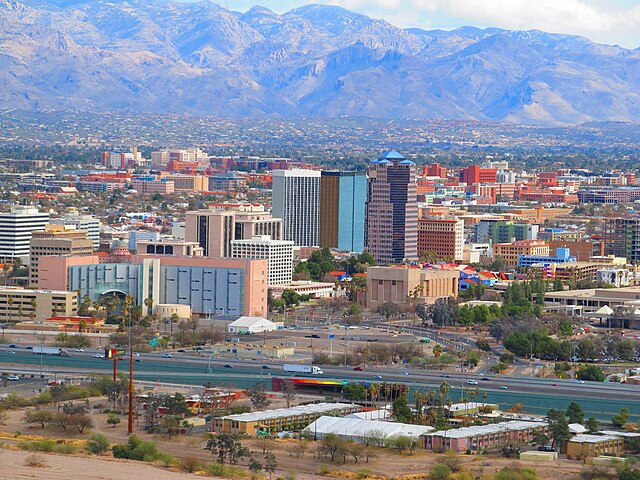
Tucson, which boasts of 350 days of sunshine each year, was chosen as the first UNESCO City of Gastronomy in the United States. It boasts several James Beard award-winning chefs and restaurants, multiple taco trucks, a wide variety of international restaurants, and is the undisputed Mexican food capital of the United Stated because of the region’s rich agricultural heritage, thriving food traditions, and culinary distinctiveness. Tucson dining is a unique experience, one that reflects the culture of the Sonoran Desert.
Although Tucson’s fantastic weather, national parks and forests and desert provide the perfect environment for tons of outdoor recreational activities, this city of half a million people also has its share of history and culture. Tucson has turn-of-the-century architecture, historic neighborhoods, a wide range of museums, historic sites, hiking trails, and some of the most unique flora and fauna in the world. The Mission San Xavier del Bac, a still-functioning 18th-century mission, is considered one of the most beautiful in the U.S., Tucson, with its distinctive Western flavor, is where the Native American culture meets Mexican and Spanish colonial history. There is also a college-town atmosphere, thanks to the University of Arizona, which has its own share of museums and a science center.
Among the attractions are:

Saguaro (pronounced sah-WAH-row) National Park (https://www.nps.gov/sagu/index.htm) – Bordering Tucson on the east and west, where the saguaro cactus reigns supreme, sometimes towering to heights of 50 feet, the park is not to be missed. Native American stories say that the saguaros used to be people and you can see that some look like people with arms growing out of their trunks.
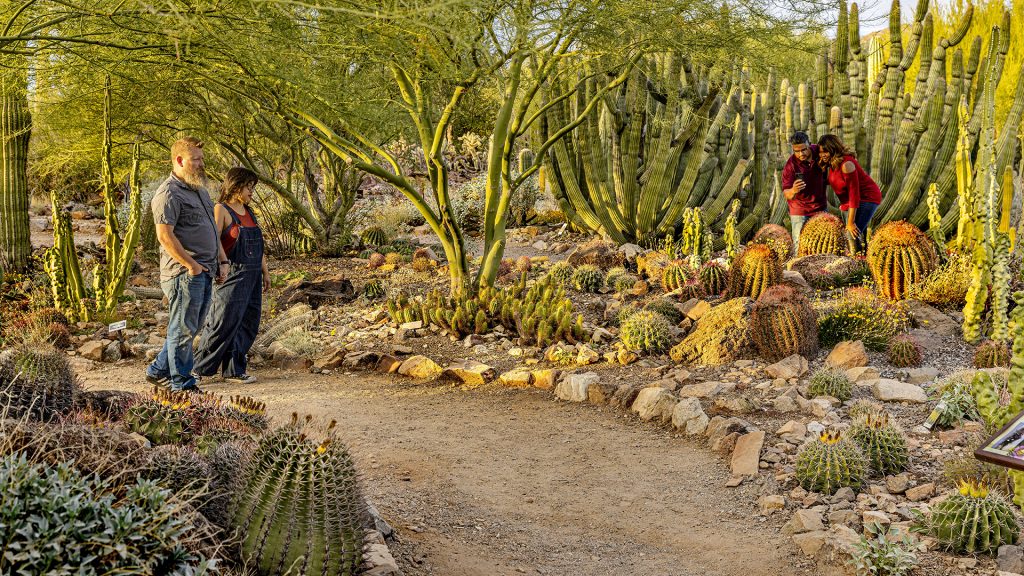
Arizona-Sonora Desert Museum (https://www.desertmuseum.org/visit/) – The word “museum” is almost a misnomer as the 98 acres are a combination of a zoo, aquarium, botanical garden and art museum. There are 230 animal species displayed in their natural habitat surrounded by 1,200 types of plants.

Mission San Xavier del Bac https://sanxaviermission.org/) – A National Historic Landmark, this Catholic mission was founded in 1692 and built in 1783 about ten miles south of downtown Tucson. It is generally considered the best example of Spanish Colonial architecture in the U.S. The interior and exterior are both breathtaking.
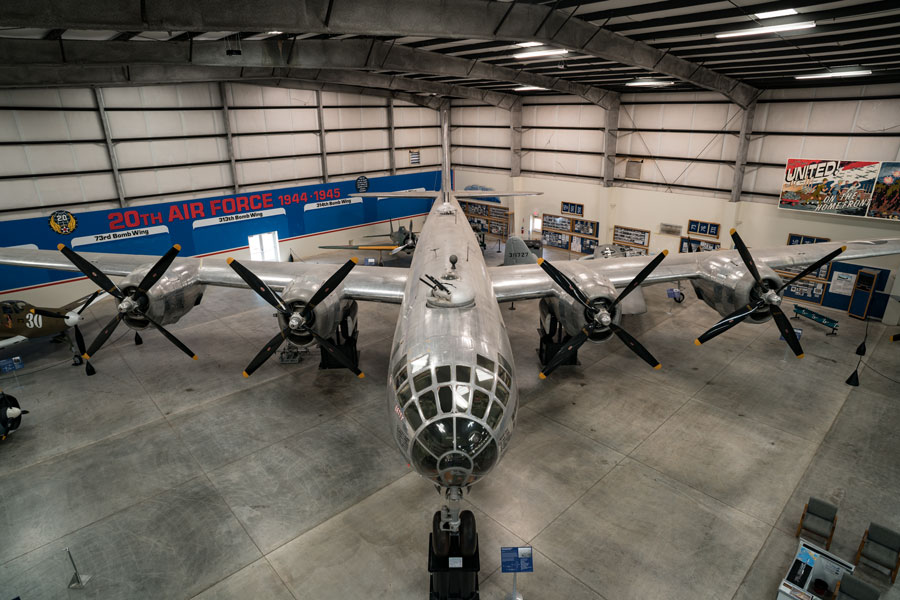
Pima Air and Space Museum (https://pimaair.org/) – With a collection of over 300 aircraft with examples throughout the history of flight, this is one of the world’s largest aerospace museums.

Sabino Canyon – Located in the Coronado National Forest, Sabino Canyon is close to the city. The Catalina Mountains rise before you and rocky gorges and canyons are accessible. A tram is available to take visitors into the canyon and riders can get off at any stop to access trailheads, pools and picnic areas.
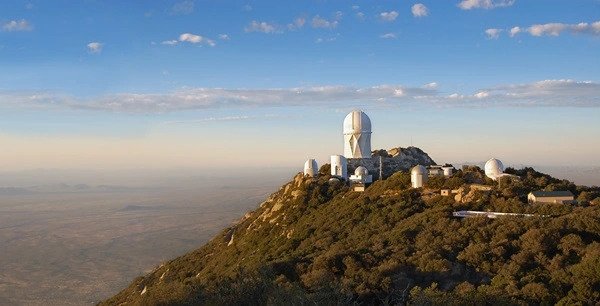
Kit Peak National Observatory (https://kpno.noirlab.edu/about) – Tucson has laws and regulations in place to keep its night skies as dark as possible. KPNO hosts the facilities of consortia that, between them, operate more than a dozen optical telescopes and two radio telescopes. It is 55 miles from Tucson. There are daily tours and a nighttime program where visitors can watch the sunset and take in the stars. Visits must be reserved well in advance.
The New York Times featured Tucson in September 2018 in their Travel Section
Tucson Tourism offers a free digital copy of the Tucson Official Travel Guide. (https://issuu.com/visittucson/docs/tucson_official_travel_guide_2023)

The conference will be held at the JW Marriott Starr Pass Tucson Resort and Spa (3800 West Starr Pass Boulevard, Tucson, AZ 85745) that is set within Tucson Mountain Park. The smoke-free hotel offers a mountaintop setting with multi-level swimming pools, waterslides, lazy rivers and fountains as well as spectacular views and a landscape laced with nature trails. The rooms feature flat-screen TVs, Wi-Fi, pillow-top mattresses, desks and coffeemakers. The resort has three golf courses, a driving range, chipping & putting greens, a Hashani full service spa, and a state-of-the art exercise room. There is self and valet parking as well as charging stations for electric cars.
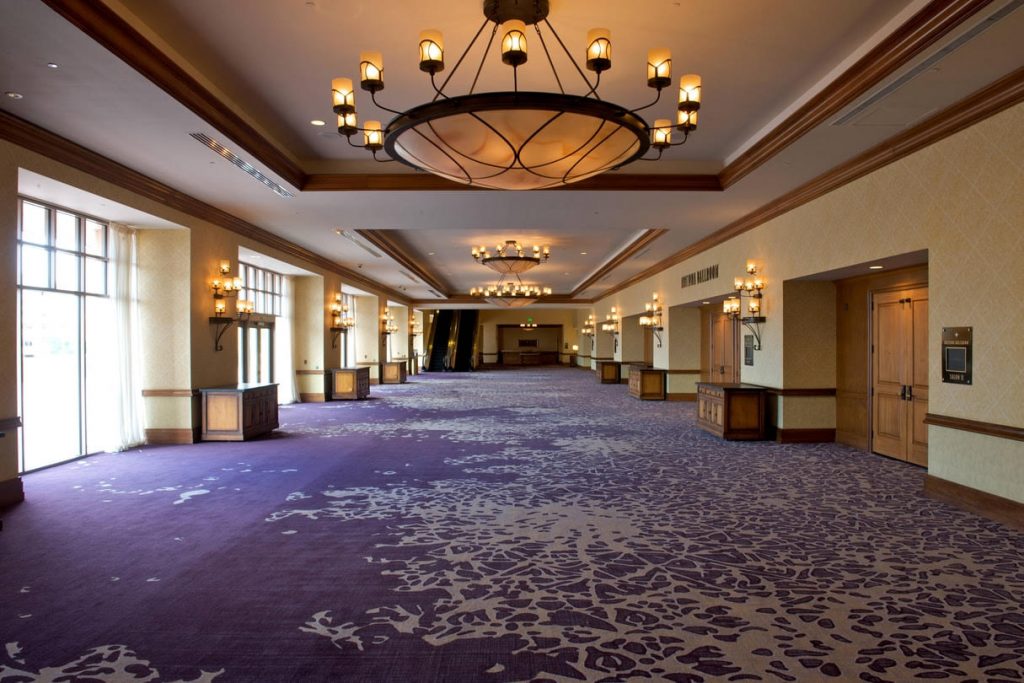
Each day begins with the Mitakuye Oyasin (pronounced MEE-TAH-KAY AWE-SIN) at 7 am on the Salud Terrace. This traditional Native American ceremony and unique Sonoran Desert experience begins with the traditional burning of sage and a Native American flute serenade
A morning hike is offered daily at 7:30 am.
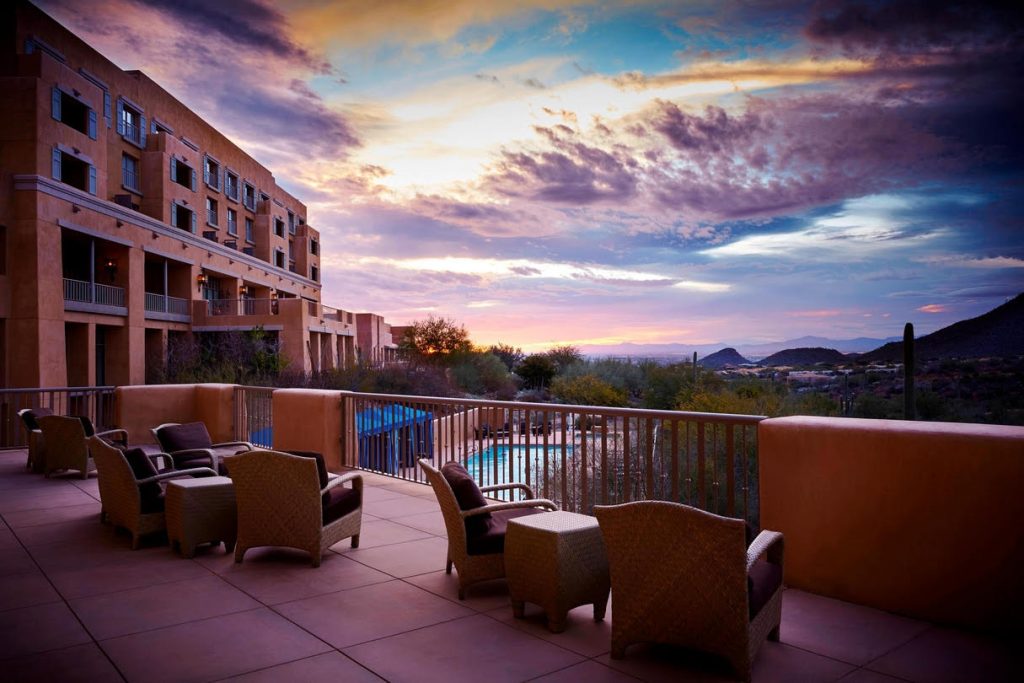
Each evening at sunset the hotel welcomes guess to gather on the Salud Terrace to watch the sunset and experience their nightly tradition – the Tequila toast – where they feature one of our more than 150 artisan tequilas and a complimentary toast: “Arriba, Abajo, al Centro, al Dentro, Salud!”
The Signature Grill features local and regional favorites inspired by Native American, Mexican and cowboy traditions. The Primo offers Italian cuisine influenced by French, Mediterranean and Spanish flavors. The Catalina Barbeque Co & Sports Bar, located at the Starr Pass Gold Club, has barbeque with a southwestern twist. The lobby bar offers over 100 tequilas, creative margaritas and cantina fare. There is also a Starbucks on site.
Past Conferences in this Series
Cell Culture Engineering I (1988)
Anthony Sinskey and Wei-Shou Hu
Palm Coast, Florida
Cell Culture Engineering II (1990)
Anthony Sinskey and Wei-Shou Hu
Santa Barbara, California
Cell Culture Engineering III (1992)
Michael Flickinger
Palm Coast, Florida
Cell Culture Engineering IV (1994)
Barry Buckland, Theodora Bibila, Wei-Shou Hu
San Diego, California
Cell Culture Engineering V (1996)
Barry Buckland, Theodora Bibila
San Diego, California
Cell Culture Engineering VI (1998)
Jeff Chalmers, Rob Arathoon
San Diego, California
Cell Culture Engineering VII (2000)
Bill Miller, Richard Schoenfeld
Santa Fe, New Mexico
Cell Culture Engineering VIII (2002)
Mike Betenbaugh and John Aunins
Snowmass, Colorado
Cell Culture Engineering IX (2004)
Octavio Ramirez and Lynne Krummen
Riviera Maya Cancun, Mexico
Cell Culture Engineering X (2006)
James Piret and Konstantin Konstantinov
Whistler, British Columbia, Canada
Cell Culture Engineering XI (2008)
Peter Gray and Carole Heath
Coolum, Queensland, Australia
Cell Culture Engineering XII (2010)
Kelvin Lee and Dana Andersen
Banff, Alberta, Canada
Cell Culture Engineering XIII (2012)
Matt Croughan and Mark Leonard
Scottsdale, Arizona
Cell Culture Engineering XIV (2014)
Amine Kamen and Weichang Zhou
Quebec City, Quebec, Canada
Cell Culture Engineering XV (2016)
Robert Kiss, Sarah Harcum and Jeff Chalmers
La Quinta, California
Cell Culture Engineering XVI (2018)
Anne Skaja Robinson, Raghavan Venkat and Gene Schaefer
Tampa, Florida
Cell Culture Engineering XVII (canceled)
Tim Charlebois, Jamey Young and Gargi Maheshwari
Cell Culture Engineering XVIII (2023)
Chetan Goudar, Laura Palomares, Tongtong Wang
Transportation
W Marriott Starr Pass Resort & Spa
3800 W Starr Pass Blvd
Tucson, AZ 85745
There are 4 ways to get from Tucson Airport (TUS) to JW Marriott Tucson Starr Pass Resort by bus, taxi, car, or towncar.
Car / Uber / Lyft / Private Transfer
- Driving directions from Tucson International Airport (TUS)
- The drive takes about 21 minutes
Taxi
- A taxi from Tucson International Airport to the JW Marriott Tucson Starr Pass Resort takes about 21 minutes and costs between $40–$50
Shuttle
- You can use a shuttle service like GO Airport Shuttle or ShuttleFare.com
- Tucson International Airport has more than 70 car, limo, and shuttle services
General Information about ECI
Engineering Conferences International (ECI) is a not-for-profit, global engineering conferences program, originally established in 1962 that provides opportunities for the exploration of problems and issues of concern to engineers and scientists from many disciplines.
The format of the conference provides morning and late afternoon or evening sessions in which major presentations are made. Poster sessions will be scheduled for evening discussion as well. Available time is included during the afternoons for ad hoc meetings, informal discussions, and/or recreation. This format is designed to enhance rapport among participants and promote dialogue on the development of the meeting. We believe the conferences have been instrumental in generating ideas and disseminating information to a greater extent than is possible through more conventional forums.
All participants are expected both to attend the entire conference and to contribute actively to the discussions. The recording/photographing of lectures and presentations is forbidden. As ECI conferences take place in an informal atmosphere, casual clothing is the usual attire.
Smoking is prohibited at ECI conferences and conference functions.
